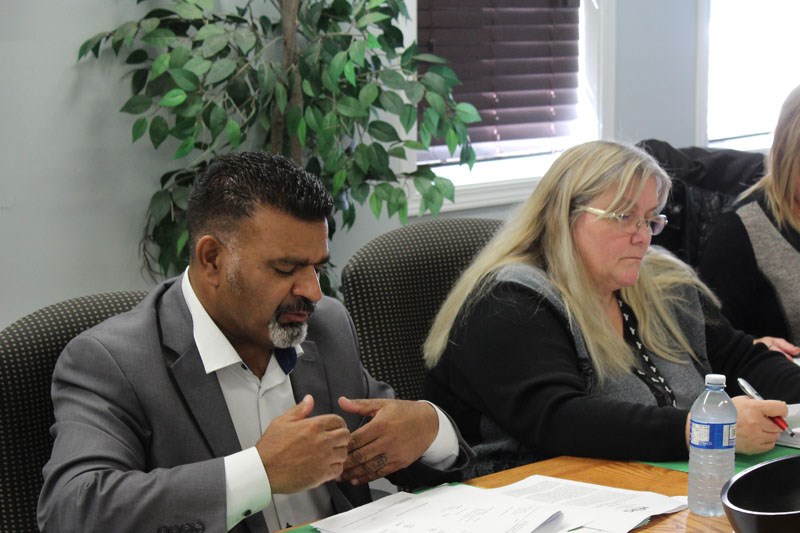Men Are Part of the Solution (MAPS) held their annual general meeting Sept. 25 at the Wawatay Inn, and covered a variety of topics related to their inner workings as a non-profit organization dedicated to deterring drug addiction and violence.
Joe Merasty
While much of this Monday get-together revolved around highlighting MAPS’s success and failures throughout the last year, president Oswald Sawh also took the time tohonour the memory of Joseph William Merasty, who died on July 5.
During the reading of his president’s report, Sawh revealed that Merasty was a client of MAPS who had been in and out of the organization’s transitional housing program due to his battles with addiction.
Sawh recalls running into Merasty several times in the days leading up to his death, including a time when he was passed out near the damp housing units on Cree Road. Unfortunately, Merasty was found dead outside a local liquor store the following week. Sawh suspects he was killed because people wanted the beer he was carrying at the time.
“Joe had a lot of issues and personal demons, but he was a good man,” said Sawh. “He was always polite, even when he got into trouble. He was always very polite to our staff and … he worked hard with the work he was given. He will be missed.”
However, Sawh also noted that a lot of the individuals they deal with suffer through some of the same issues, which is why it is so important for MAPS to push forward with their mission to provide men with healthy alternatives to addiction and violence.
“Our clients are not just statistics, they are people with their own stories, their own dreams,” said Sawh. “And hopefully more time is spent on trying to ‘individualize’ them and find out their story rather than lumping them into a group.”
Programs and services
In this respect, board member Michele Nichol provided an analysis of MAPS’s various programs and services during her director’s report.
According to Nichol, their counselling program Healthy Relationships, which focuses on helping men better manage stress and anger, saw 46 intakes for the year ending March 31, 2017.
While this represents a significant decline from last year’s rate of 95 intakes, Nichol said a lot of that reduction can be chalked up to the extended period of time that she was on leave.
“Being both the program director and the only therapist on staff does pose a challenge as our organization does not have a depth of resources.”
In terms of Phoenix House, MAPS’s alcohol- and drug-free transitional housing program, Nichol noted that they were able to accommodate an average of six individuals throughout the last year, even though their facility can hold a total of 12 occupants.
“The average 50 per cent capacity rate highlights the reality that even though Thompson has a significant issue relating to drug and alcohol addictions, there is still a significant amount of individuals who are not willing to make the commitment to sobriety in order to make progress in their lives,” she said.
On the other hand, Nichol also mentioned that more than 70 per cent of the men who went through Phoenix House during its three-year history were able to achieve stability in their lives.
“This would indicate that at least 26 men have managed to help themselves out of life of addiction and, as a result, their family and communities have benefited.”
Financial audit
The financial report submitted by professional accountant Manisha Pandya specified that MAPS’s revenue for the year was $294,748, which is down from the $332,738 they generated in 2015–16.
However, in terms of expenses, MAPS is sitting at an operating cost of $291,377, which means they achieved a net revenue of $3,371.
Elections
The meeting wrapped up with open elections, where Sawh was re-elected as MAPS president.
However, the organization is still looking to sign up two community members at large, who will be responsible for attending three to four meetings a year and sit on the board as advisors.
For more information on MAPS, please visit their official website.




